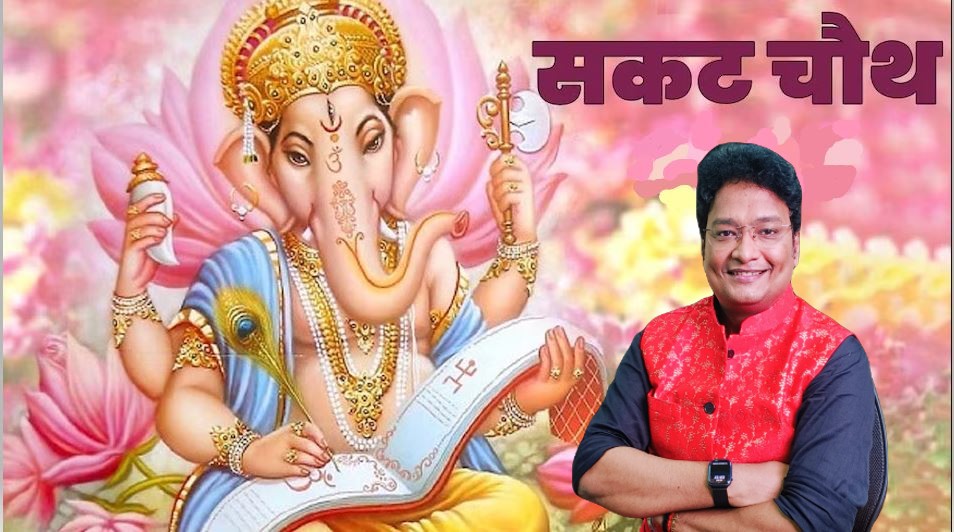Astrology
What to do and what not to do on Mauni Amavasya – Astrohealer Prammit Sinha

Mauni Amavasya is a significant Hindu festival celebrated on the new moon day, or Amavasya, during the Hindu month of Magha (January-February).
In detail
Astrohealer Shree Prammit Sinha says, Mauni Amavasya is considered a significant day in Hinduism, and it is believed to have special spiritual significance. It usually falls in the month of Magha in the Hindu calendar.
The term “Mauni” is derived from the Sanskrit word “Mauna,” which means silence. On this day, devotees observe silence or practice Mauna (keeping silent) as a form of spiritual discipline. It is believed that silence helps individuals turn their focus inward, aiding in introspection and meditation.
While there may be variations in traditions and practices among different communities, here are some general suggestions on what to do and what not to do on Mauni Amavasya:
What to do:
- Taking a bath in sacred rivers, especially the Ganges, Yamuna, or other significant water bodies, is believed to purify the soul.
- Making donations or offering charity on this day is considered auspicious. It could include giving food, clothing, or other essentials to the less fortunate.
- Devote time to meditation, prayer, and spiritual practices to connect with the divine and attain inner peace.
- Reading or reciting religious texts, particularly those associated with the lunar cycle, is considered beneficial.
What Not to do:
- Mauni Amavasya is traditionally associated with silence. Therefore, it is advisable to refrain from unnecessary speech and gossip.
- Many people choose to follow a vegetarian diet on this day as a part of their spiritual observance.
- Try to maintain a positive and peaceful state of mind. Avoid engaging in negative thoughts, words, or actions.
- Try to minimize exposure to loud music, bright lights, and other forms of excessive sensory stimulation. This helps create a conducive environment for spiritual reflection.
It’s important to note that these suggestions are general guidelines, and specific traditions and customs may vary. Individuals
Astrology
Understand The Significance Of Amalaki Ekadashi – Astrohealer Prammit Sinha

Amalaki Ekadashi is a significant Hindu festival observed on the eleventh day of the waxing phase of the moon (Shukla Paksha) in the Hindu calendar month of Phalgun. This day holds immense spiritual significance and is dedicated to the worship of Lord Vishnu, one of the principal deities in Hinduism.
Significance
According to Astrohealer Shree Prammit Sinha, The word “Amalaki” refers to the Indian gooseberry tree, also known as Amla, which holds great significance in Hindu mythology and Ayurveda. The observance of Amalaki Ekadashi is associated with the worship of Lord Vishnu and the Amalaki tree.
Here are some aspects of the significance of Amalaki Ekadashi:
- Observing Amalaki Ekadashi is believed to cleanse one’s soul and mind. Devotees observe fasts and engage in prayers and worship to seek forgiveness for their past wrongdoings and to purify themselves spiritually.
- Like all Ekadashi observances, Amalaki Ekadashi is dedicated to Lord Vishnu, the preserver in the Hindu trinity. Devotees perform special rituals, prayers, and bhajans to express their devotion to Vishnu and seek his blessings.
- The Amalaki tree is considered sacred in Hinduism and is often associated with various deities, including Lord Vishnu. On this day, devotees offer prayers to the Amalaki tree, which is believed to bestow blessings and spiritual benefits upon them.
- In some regions, especially rural areas where agriculture is a significant part of life, Amalaki Ekadashi marks the beginning of the spring season and is celebrated with agricultural rituals. It signifies the rejuvenation of nature and the onset of favorable conditions for farming.
- The Indian gooseberry (Amla) is highly valued in Ayurveda for its medicinal properties. Consuming Amla or its products on this day is believed to promote good health and well-being. It is considered auspicious to consume Amla-based dishes and drinks during the Ekadashi fast.
Overall, Amalaki Ekadashi holds both spiritual and cultural significance in Hindu tradition, emphasizing devotion, purification, and the celebration of nature’s bounty.
Astrology
Do These Remedies On Shattila Ekadashi, Happiness And Prosperity Will Come To Your Home – Astrohealer Prammit Sinha

Shattila Ekadashi is a Hindu religious observance that falls on the 11th day (Ekadashi) of the Krishna Paksha (waning phase of the moon) in the Magha month of the Hindu calendar.
Remedies
Astrohealer Shree Prammit Sinha says, The word “Shattila” is derived from two Sanskrit words: “Shat,” meaning ‘hundred,’ and “Tila”, referring to sesame seeds. As the name suggests, sesame seeds play a pivotal role in the rituals associated with this Ekadashi. Devotees believe that observing the Shattila Ekadashi fast with sincerity and devotion can cleanse the soul and bring blessings from Lord Vishnu.
Here are some remedies and rituals associated with Shattila Ekadashi for attracting happiness and prosperity:
- Perform a special puja on Shattila Ekadashi. Offer prayers to Lord Vishnu and seek his blessings for wealth and prosperity. Recite Vishnu Sahasranama or other Vishnu mantras during the puja.
- Observe a strict fast on Shattila Ekadashi. Fasting is believed to purify the mind and body, and it is considered a way to seek blessings for prosperity.
- Engage in acts of charity and donate to the needy. Offering food, clothing, or money to the less fortunate is believed to bring blessings and increase wealth.
- Offer Tulsi leaves to Lord Vishnu during the puja. Lighting a ghee lamp and offering it to the deity is considered auspicious and can attract prosperity.
- Chanting specific mantras dedicated to Lord Vishnu or Lakshmi can enhance the positive energy and bring prosperity. The most well-known mantra is the Vishnu Gayatri mantra or the Lakshmi Gayatri mantra.
Remember that the sincerity and devotion with which you perform these remedies are crucial. It’s essential to approach these practices with a pure heart and genuine intentions for the well-being of yourself and others.
Astrology
Understand the Significance of Sakat Chauth – Astrohealer Prammit Sinha

Sakat Chauth is a significant Hindu fasting observance dedicated to Lord Ganesha.
The Significance
Astrohealer Shree Prammit Sinha says, also known as Sankashti Chaturthi, Sakat Chauth is a significant Hindu fasting day dedicated to Lord Ganesha. It is observed on the fourth day (Chaturthi) of the Krishna Paksha (waning phase of the moon) in every lunar month. However, the Sakat Chauth that falls on a Tuesday is considered particularly auspicious and is known as Angaraki Chaturthi.
The word “Sakat” refers to obstacles, and the observance of Sakat Chauth is believed to remove impediments and challenges from one’s life. Devotees, mostly women, observe a day-long fast on this auspicious occasion to express their devotion and seek divine intervention for the well-being of their families.
Here are some key aspects of the significance of Sakat Chauth:
- Sakat Chauth is primarily dedicated to Lord Ganesha, the elephant-headed deity who is revered as the remover of obstacles and the god of wisdom and prosperity. Devotees observe this fast to seek the blessings of Lord Ganesha for the well-being of their families and the removal of hurdles in their lives.
- Devotees observe a day-long fast on Sakat Chauth, abstaining from food and water until they spot the moon in the evening. The fast is broken after sighting the moon, and traditional prayers and rituals are performed.
- The moonrise is a crucial moment during Sakat Chauth. It is believed that observing the moon on this day has special significance, and it is customary for devotees to look at the moon through a sieve (chalni) before breaking their fast. This ritual is known as the “chalni darshan.”
- Sakat Chauth is particularly observed by mothers who seek the well-being and protection of their children. It is believed that observing this fast can bring health, happiness, and prosperity to the family, especially the children.
It’s important to note that the traditions and rituals associated with Sakat Chauth may vary in different regions and communities. The observance of this fast is a way for devotees to express their faith, seek divine blessings, and strengthen their spiritual connection with Lord Ganesha.
-

 India2 years ago
India2 years agoAs the arrangement with Prashant Kishor falls through Rahul Gandhi has gone overseas again and is uncontactable
-

 Fact Check4 years ago
Fact Check4 years agoNidhi Razdan, fake Harvard professorship, and here is the explanation through her blog.
-

 Latest News3 years ago
Latest News3 years agoTata wins Air India with ₹18,000 crore bid
-

 Latest News3 years ago
Latest News3 years agoGovernment has spent ₹9,725 crores on Covid-19 vaccination drive so far
-

 Latest News3 years ago
Latest News3 years agoJharkhand government cuts Petrol price by massive ₹25 a litre but with a catch
-

 Technology3 years ago
Technology3 years agoBSNL reveals all new 4G plans starting at ₹16
-

 Navi Mumbai3 years ago
Navi Mumbai3 years agoNavi Mumbai civic body raids and tests morning walkers, many found COVID positive
-

 Latest News3 years ago
Latest News3 years agoRaj Kundra Gave ₹25 Lakh Bribe to Mumbai Crime Branch to Avoid Arrest













